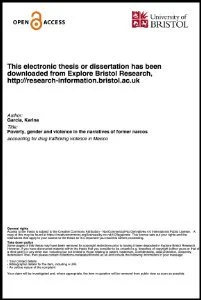By Neil Donnelly
To examine 10-year trends in offending by females in New South Wales (NSW) between 2014 and 2023. METHOD Data were extracted from the NSW Police Force’s Computerised Operational Policing System (COPS) for all people proceeded against by the NSW Police Force between 2014 and 2023. The number and proportion of offences committed by female and male offenders are presented. Offending trends are examined across 32 specific offence categories using the average annual percentage change in offences and the Kendall’s rank order correlation test to determine statistical significance. This analysis is conducted for the entire population of female and male offenders regardless of age, then repeated for the subset of young offenders. RESULTS Between 2014 and 2023 the number of females proceeded against by NSW police increased by 40%, compared to just 17% for males. The proportion of female offenders grew by around 15%, from 19% of all offenders in 2014 to 22% of all offenders in 2023. Female offenders were most commonly proceeded against for steal from retail store (12%), possess/use drugs (12%), domestic violence (DV) assault (11%), non-DV assault (7%) and breach bail conditions (7%). Much of the overall growth in female offending can be explained by increases in a small number of high-volume offence categories. These include: breach of Apprehended Violence Orders (12% increase in female offences from 2014 to 2023 versus a 7% increase in male offenders); breach bail conditions (12% vs. 8%); DV assault (8% vs. 2%); and non-DV assault (4% vs. 1%). The average annual number of female offenders (compared to males) also increased across several lower volume offences, although these contributed less to the growth in female offending overall. Most predominantly: sexual touching, sexual act and other sexual offences (13% vs. 2.5%); motor vehicle theft (12% vs. 9%); prohibited weapons offences (8% vs. 4%); break and enter non-dwelling (7% vs. stable); and trespass (6% vs. 3%). Trends and offending patterns were similar for young female offenders aged 10-17 years. One difference was the number of young female offenders grew by just 20% between 2014 and 2023 (compared to relatively stable trends for young male offenders). CONCLUSION While there has been a long-term increase in the number of female offenders proceeded against by the NSW Police Force, they continue to represent a small proportion of all offenders. Further analysis utilising representative surveys may provide insight int
Sydney: NSW BUREAU OF CRIME STATISTICS AND RESEARCH - 2024. 14p.





